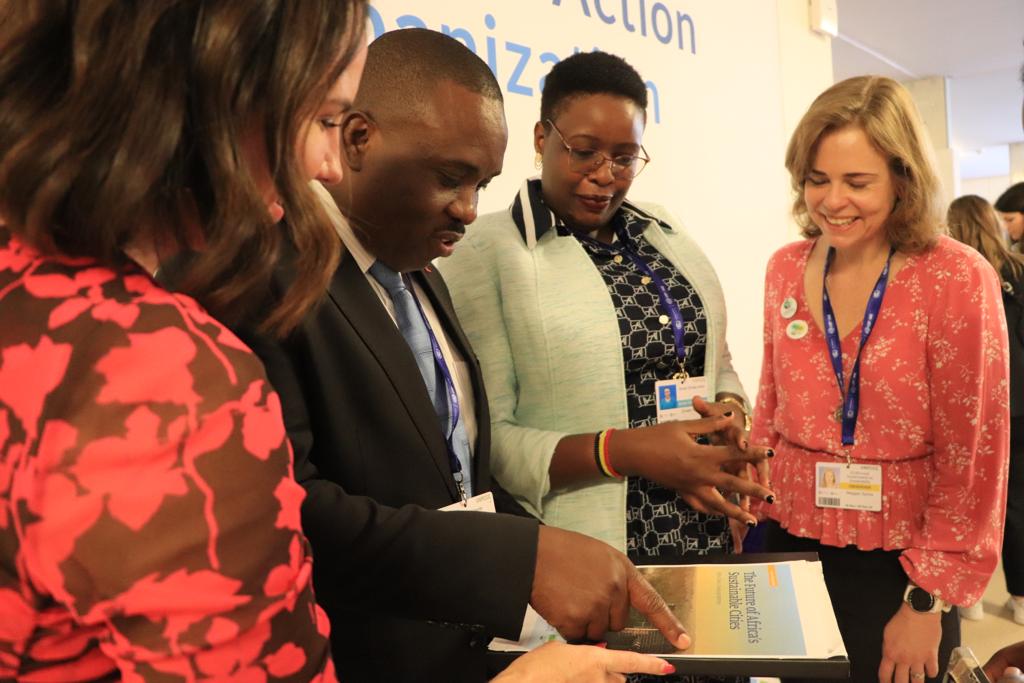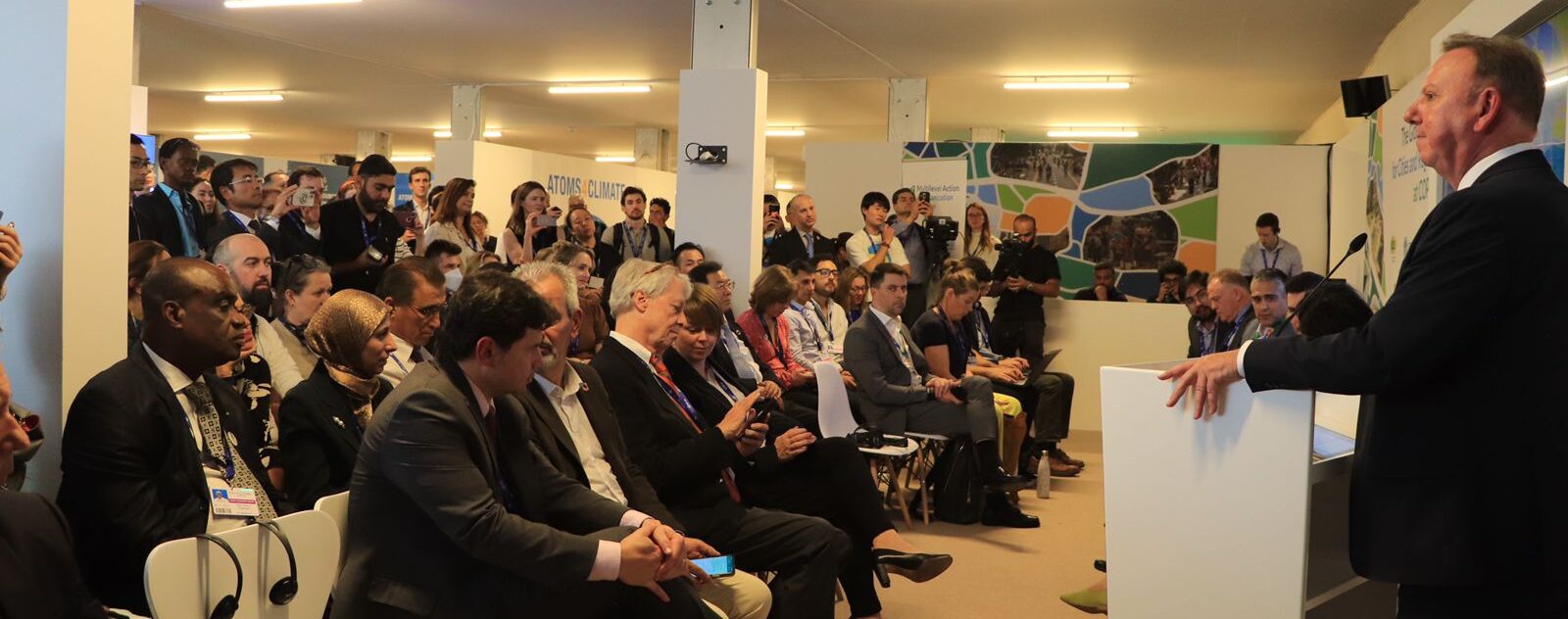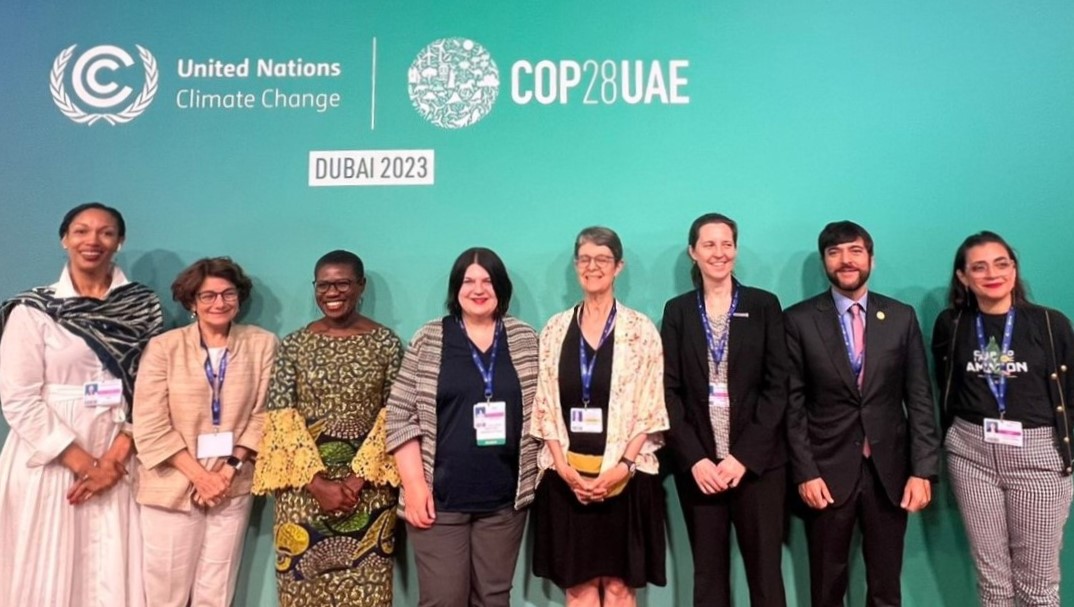


Our cities and regions across the continent are gearing up to make their voices heard loud and clear at COP28, through a range of interventions, stressing the urgent need to scale up a rigorous all-of-economy, all-of-society approach which leads to urgent and significant climate action this decade.
This year, ICLEI – Local Governments for Sustainability, the focal point of the Local Governments and Municipal Authorities (LGMA) Constituency and UN-Habitat, the United Nations entity responsible for sustainable urbanisation, have announced plans for a joint pavilion in the Blue Zone at COP28. The Multilevel Action & Urbanisation Pavilion will function as the global stage for the city and subnational climate agenda at COP28. It will not only spotlight the challenges and needs of local and subnational actors, but also showcase their accomplishments and commitments on climate action.

1 December 2023
The World Climate Action Summit during COP28 on December 1st and 2nd promises a pivotal moment in the global fight against climate change. The World Leaders Summit, a central component of this event, is anticipated to bring together heads of state and government officials to deliberate on crucial issues. Expectations are high for the announcement of ambitious emission reduction commitments, increased climate financing, and cooperative strategies to accelerate the implementation of the Paris Agreement.
In parallel, the Local Climate Action Summit will spotlight the indispensable role of local governments in addressing climate challenges. This parallel event will likely feature showcases of innovative projects and policies from cities and regions worldwide, emphasizing the significance of local-level initiatives. The summit aims to foster collaboration, encouraging the exchange of ideas and best practices between local and international actors. Collectively, these dual summits at COP28 represent an opportunity for collaborative multi-level collaboration.
Check back to find highlights from COP28 on 1 December 2023
Announcement
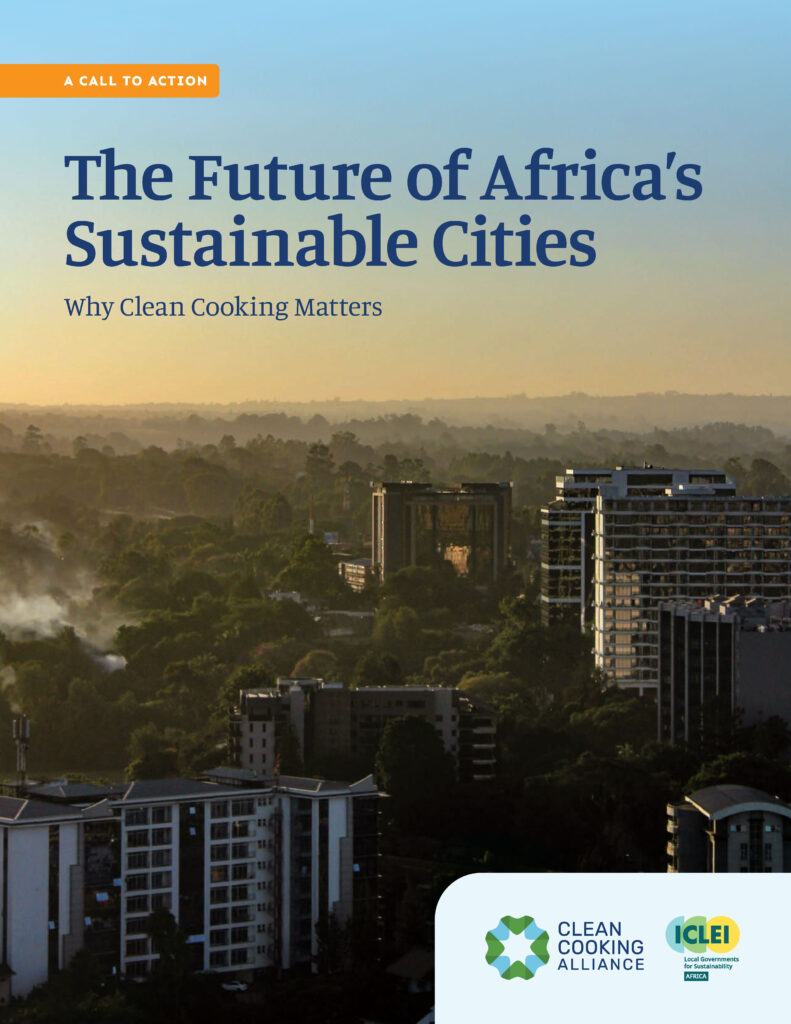
JUST LAUNCHED AT COP28
The Future of Africa’s Sustainable Cities: Why Clean Cooking Matters report
“The Future of Africa’s Sustainable Cities: Why Clean Cooking Matters” report, co-developed by ICLEI Africa and the Clean Cooking Alliance, underscores the urgent need for clean and context-relevant cooking solutions by articulating the environmental, climate and health benefits of clean cooking.
This report is a call to action to all African governments and city leaders who are grappling with the complex challenges of climate change, air pollution, forest degradation, energy poverty and inequality in rapidly growing and urbanising cities across the continent, to prioritise clean cooking. Clean cooking is an immediate cross-cutting solution that can deliver a range of benefits across these critical focus areas and is essential for a just transition.


The percentage of the population WITHOUT access to clean cooking in SSA increased by 16% between 2020 and 2021, while the rest of the world saw decreases. The gap is widening between Africa & the world on this crucial issue. This is a travesty. ICLEI Africa is proud to be working hand-in-hand with the Clean Cooking Alliance to tackle this issue head-on.
Dr Meggan Spires
Director: Climate Change, Energy & Resilience
LEARN MORE ABOUT CLEAN COOKING IN AFRICA
Watch our clean cooking explainer video
Through accelerating access to clean cooking in sub-Saharan African cities, the ENACT project is transforming lives!
The Enabling African Cities for Transformative Energy Access (ENACT) Project, is supported by UK aid from the UK Government via the Transforming Energy Access platform. This project is being implemented by ICLEI Africa with support from Mercy Corps-Energy 4 Impact.
2 December 2023
The World Climate Action Summit during COP28 on December 1st and 2nd promises a pivotal moment in the global fight against climate change. The World Leaders Summit, a central component of this event, is anticipated to bring together heads of state and government officials to deliberate on crucial issues. Expectations are high for the announcement of ambitious emission reduction commitments, increased climate financing, and cooperative strategies to accelerate the implementation of the Paris Agreement.
In parallel, the Local Climate Action Summit will spotlight the indispensable role of local governments in addressing climate challenges. This parallel event will likely feature showcases of innovative projects and policies from cities and regions worldwide, emphasizing the significance of local-level initiatives. The summit aims to foster collaboration, encouraging the exchange of ideas and best practices between local and international actors. Collectively, these dual summits at COP28 represent an opportunity for collaborative multi-level collaboration.
Highlights from "Inclusive Strategies for Local Climate Adaptation & Resilience"
This event is hosted by ICLEI, in partnership with Cities Race to Resilience, and took place at the Local Climate Action Summit on 1 December 2023.
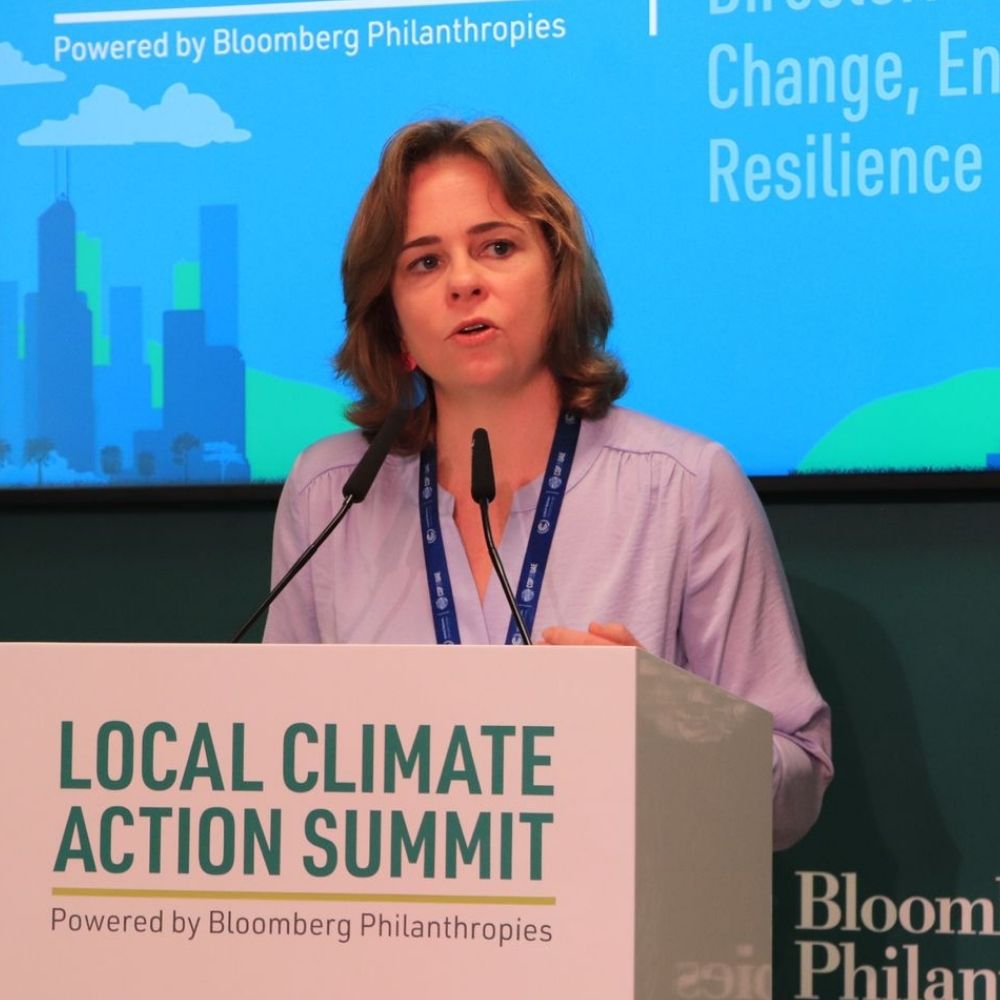

Ignore the communities most impacted by climate change at your peril. Not only because they are impacted, but because they also have the solutions.
Dr Meggan Spires
Director: Climate Change, Energy & Resilience
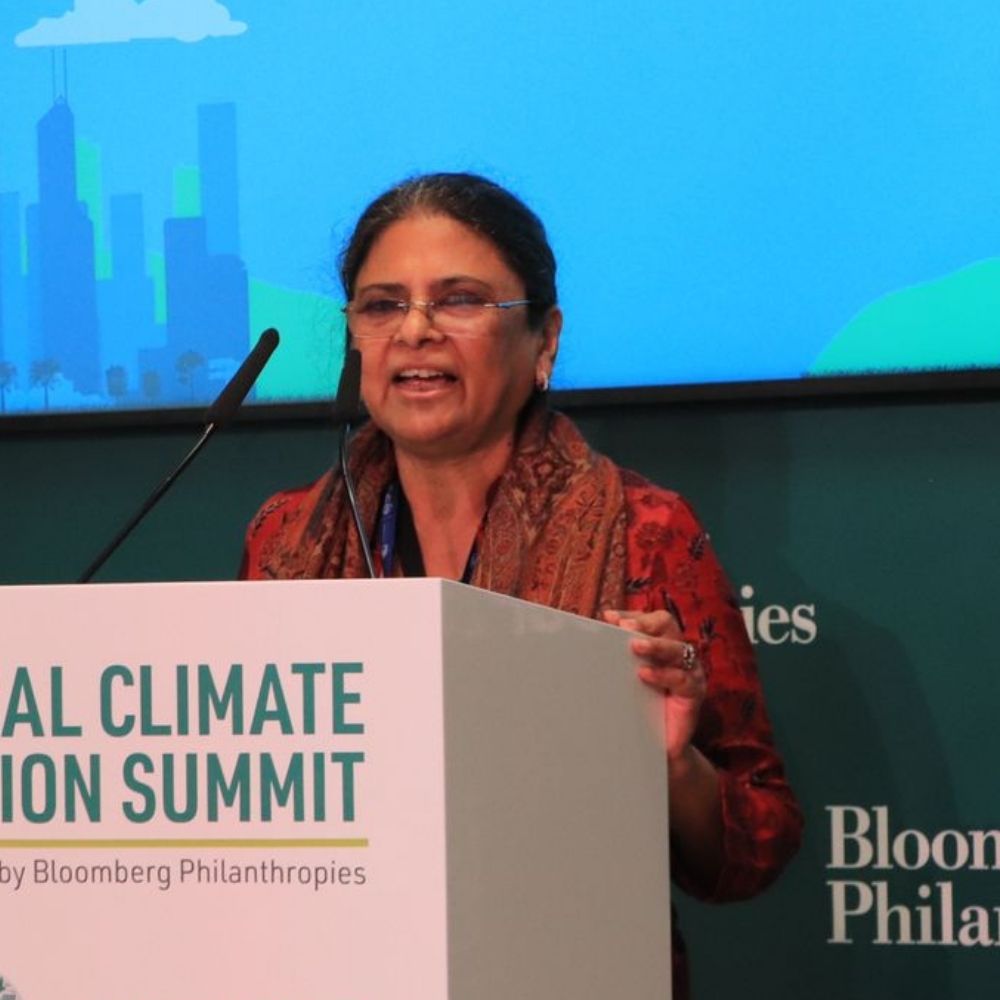

40-60% of urban poor have no water or sanitation access. These are often the first homes destroyed in climate disasters. It’s time to be brave, to change. Otherwise we run the risk of doing nothing.
Ms Sheela Patel
Director, SPARC and HLC Ambassador
LEARN MORE ABOUT ADDRESSING INFORMALITY
Addressing Informality for equitable urban resilience
This work addresses the role of informality in urban resilience and equity. It is aimed urban development practitioners, resilience planners, and policy-makers. Compiled by a working group of the Southern Africa Resilience Academy (SARA), the objective was to reframe the complex roles informality plays in urban resilience. In challenging preconceived notions of informality, we hope to identify more equitable, resilient, and sustainable pathways for urban development with particular attention to challenges in the Global South.
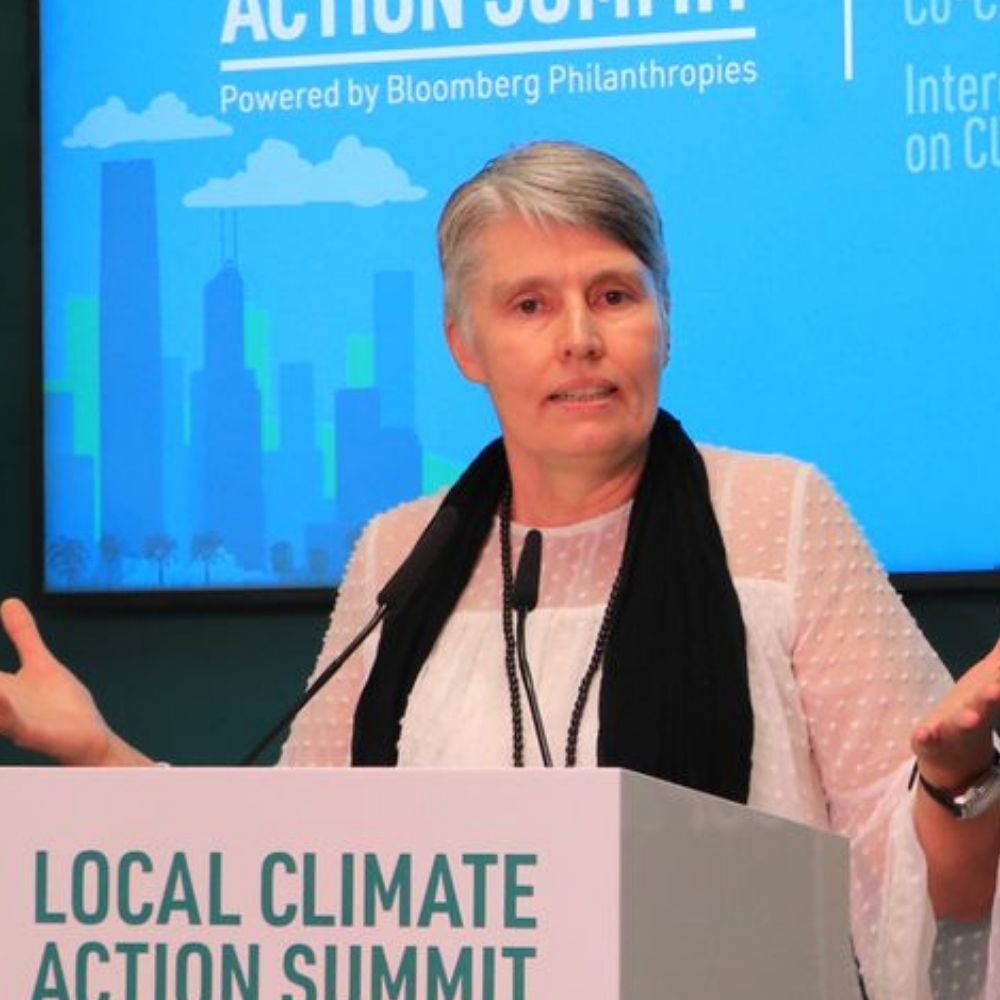

This is likely to be the hottest year on record, we now are committed unavoidably to losses and damages in our future.
What concerns me is often invisible and way more insidious than some of these scientific concerns. And that’s the pandemic of inequality and inequity in the world, which works to insidiously undermine all of our ambitious actions around adaptation and mitigation.
So our key challenge is: How do we tackle a deeply unequal world?
Prof Debra Roberts
Co-Chairperson for Working Group II of the IPCC 2022 &
Acting Head of the Sustainable & Resilience City Initiatives Unit, eThekwini Municipality
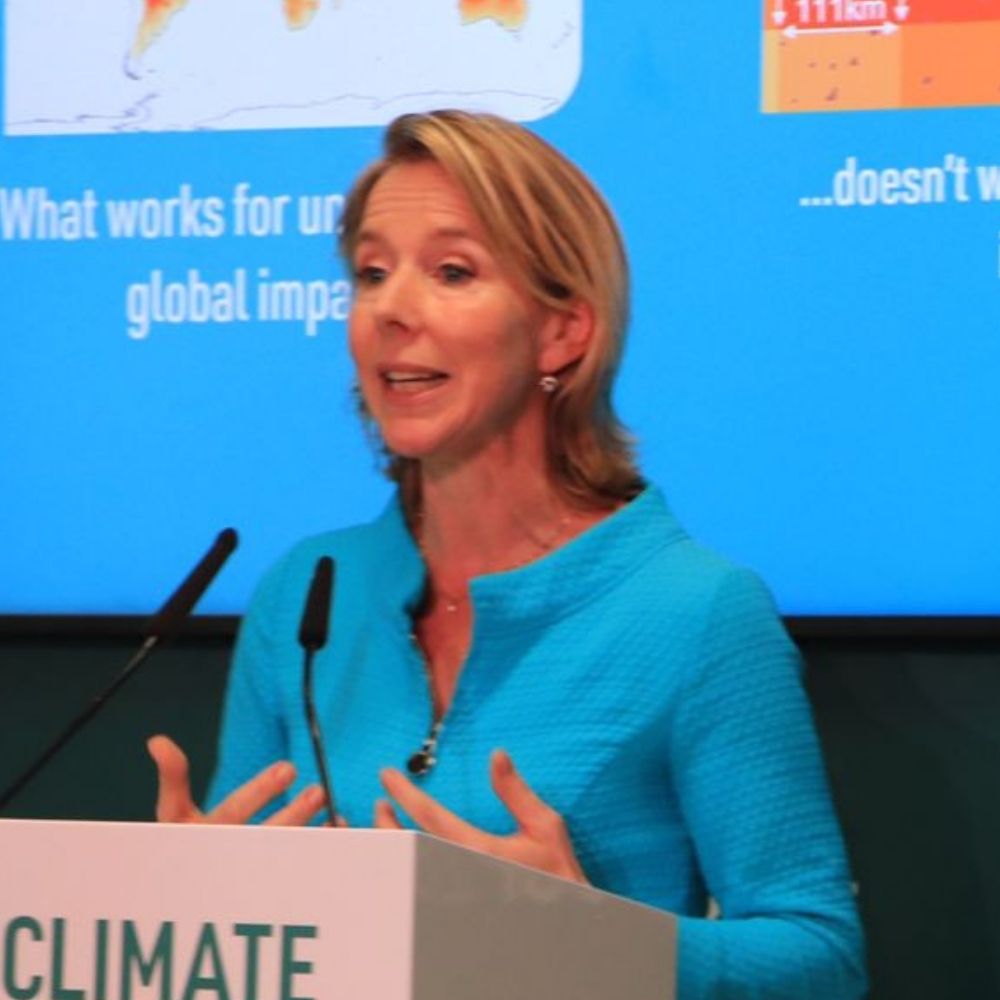

As global warming continues, cities are affected more and the poor are affected most!
We need to pay attention to collaboration and science.
Stientje Van Veldhoven
WRI Vice President and Regional Director for Europe
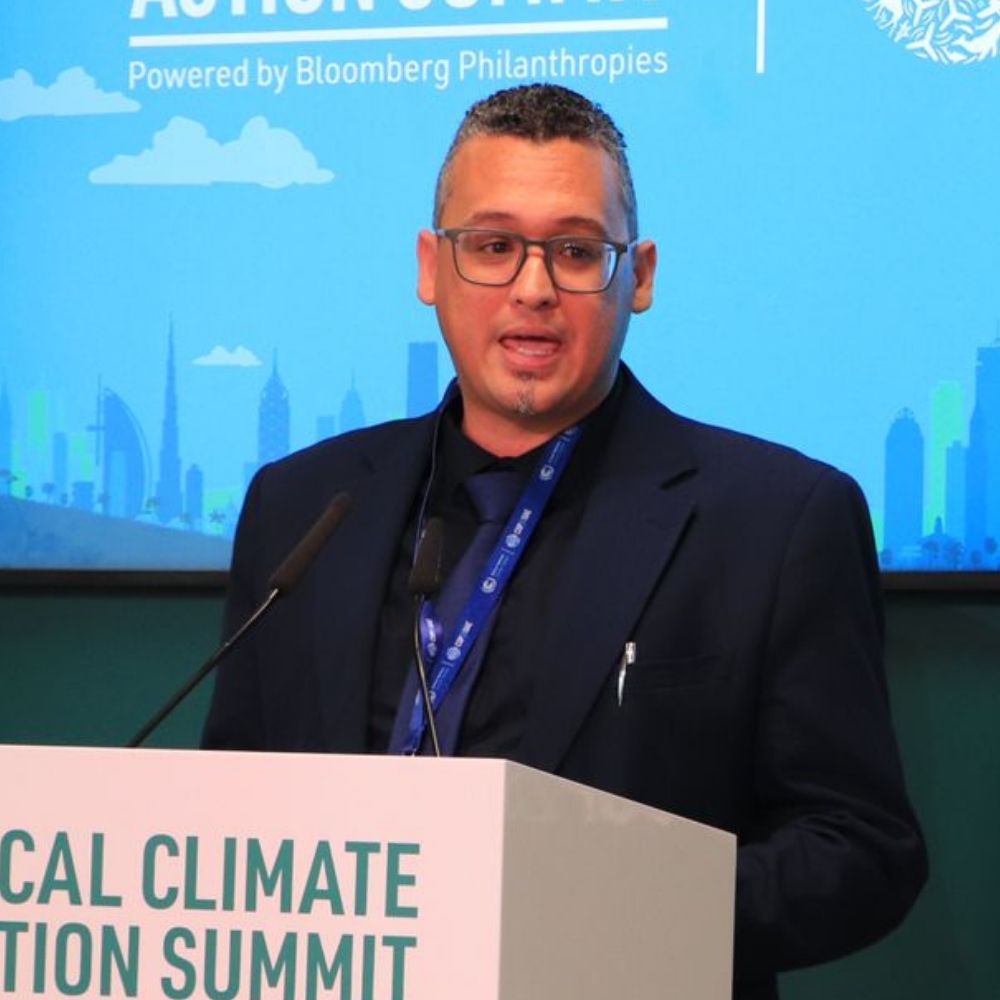

In Walvis Bay, we recognise the critical importance of involving & empowering local communities to encourage a sense of ownership, and promote grassroots local climate action. This world is all we have. We must, and can, save it.
Collaborative approach helps to leverage resources and partnerships.
By safeguarding biodiversity, Walvis Bay hopes to use ecosystem services to enhance resilience.
We need to look at early warning systems for those living close to the coastline.
We need to implement water harvesting techniques and optimise water usage for drier periods.
Mr Trevino Forbes
Mayor of Walvis Bay, Namibia
DID YOU KNOW?
Walvis Bay has been an ICLEI Member since 2003
The city is also a proud Member of CitiesWithNature and CoM SSA.
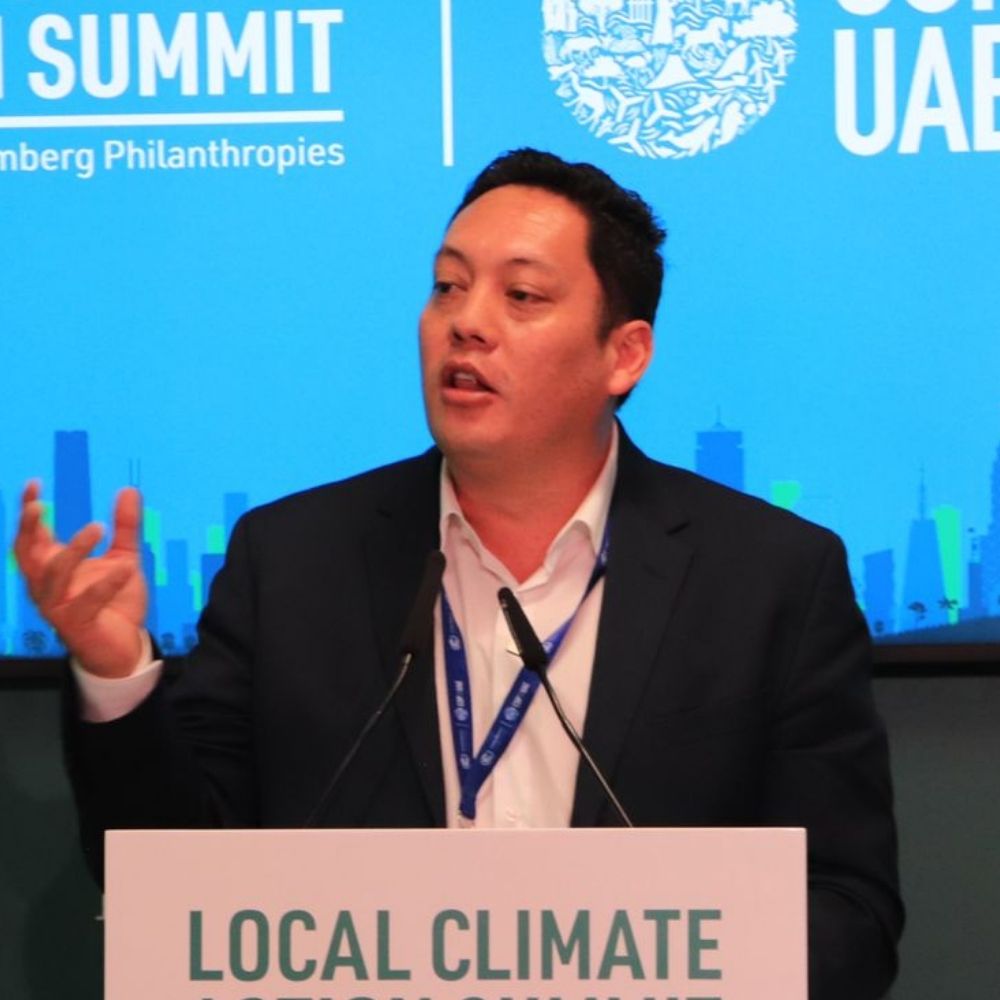

We use democracy to make decisions about climate change – we called a referendum for the people to vote on whether the government should protect certain areas. Almost 85% of the people said they are not willing to destroy these areas and that we must stop. It is the subnational governments that are pushing forward to find real solutions.
Ecuador is the first country to vote at the national level to keep oil in the ground and not exploit it – because of the Amazonas.
Hon. Dr Cristian Zamora
Mayor of the City Government of Cuenca
Highlights from "Nurturing Nature: Bringing Nature Positive Cities to the Forefront of Urban Climate Action"
Leveraging the momentum from COP28’s Nature Outcome Three, the event will advance the call to action for “Nature Positive Development in cities and regions.”
The event is set to facilitate the roll-out of an Urban Nature Program.
Announcement
JUST LAUNCHED AT COP28
The Urban Nature Program
This exciting new program is co-led by the World Bank through its Global Platform for Sustainable Cities (supported by the GEF), the UN Environment Programme (UNEP) as part of the UN Decade on Ecosystems Restoration, and ICLEI – Local Governments for Sustainability, in partnership with the World Resources Institute, International Union for the Conservation of Nature (IUCN), and C40 Cities. Key collaborators include the World Business Council for Sustainable Development (WBCSD), multilateral/regional development banks, and the European Commission.


We are urging cities to report on their actions, to increase investment in ecosystem restoration, to support policy alignment between biodiversity and climate. This Urban Nature Program initiative calls cities to include nature in their climate action plans. This plan will serve as a catalyst for the nature-climate agenda.
Jen Austin, Director of Strategy and Policy at Climate Champions Team, obo Her Excellency Razan al Mubarak, President of the International Union for Conservation of Nature (IUCN) & esteemed UN Climate Change High-Level Champion
HOW CAN CITIES REPORT THEIR ACTIONS FOR NATURE?
Share, learn, report & act on CitiesWithNature
The CitiesWithNature Action Platform, recognised by the UN Convention on Biological Diversity, accelerates bold action for nature by enabling cities to make commitments and share their achievements. Here cities can show what actions they are taking to help achieve the global nature goals. These goals are the beacons that will guide us on our journey to becoming neighbourhoods, cities, regions and countries that live in harmony with nature.
Want to start sharing your commitments and take action for nature?


Cities are on the frontline of devastating impacts of climate change. By 2030, we estimate that climate change could cost $415 billion a year to urban areas… and could also push 75 million people into poverty.
Investing in nature and nature-based solutions in cities can help put them on a path to resilient growth, and to adapt to climate change, and to be key drivers of this change.
Louise Cord
Global Director, Social Sustainability & Inclusion, World Bank Group


Our vision of bioeconomics goes beyond sustainable production and climate resilience; it also encompasses actions related to green infrastructure, job creation, and the potential of low carbon socio-economic growth.
We are aware of the environmental challenges that we face, but we also acknowledge the opportunity of leading the way towards a development that is responsible and balanced. The Amazon is not just a priority. It is a commitment to future generations.
Brenda Maradei, Member of the State Committee for COP 30 and former Deputy Secretary of Planning and Budget of the State of Pará, obo Hana Ghassan Tuma, Vice-Governor, State of Para, Brazil


Investment in nature-based solutions delivers additional value. It delivers social justice value, it delivers equity and also combines mitigation and adaptation.
If we don’t have clarity of vision about why we’re investing in nature, and how and where we’re investing in nature, then there is always the danger of exacerbating existing inequality, but also of not doing it right and of creating further problems within our city.
Susan Aitken
Council Leader, City of Glasgow, Scotland
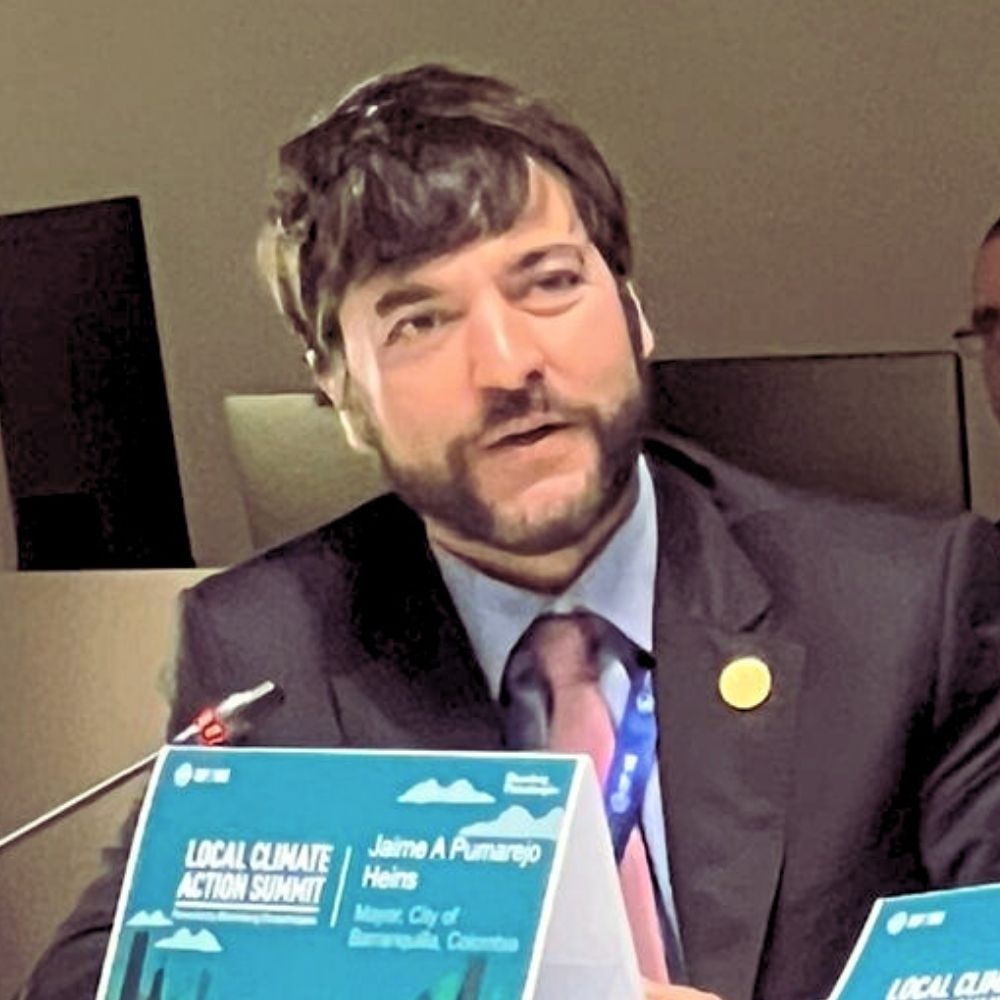

The biggest issue that we’re trying to solve when talking about nature-positive cities is actually changing the way Colombians interact with nature – what we’re trying to achieve, I would say more than anything else, is to nurture the relationship and the appreciation of our citizens with nature.
Jaime Alberto Pumarejo Heins
Mayor, City of Barranquilla, Colombia
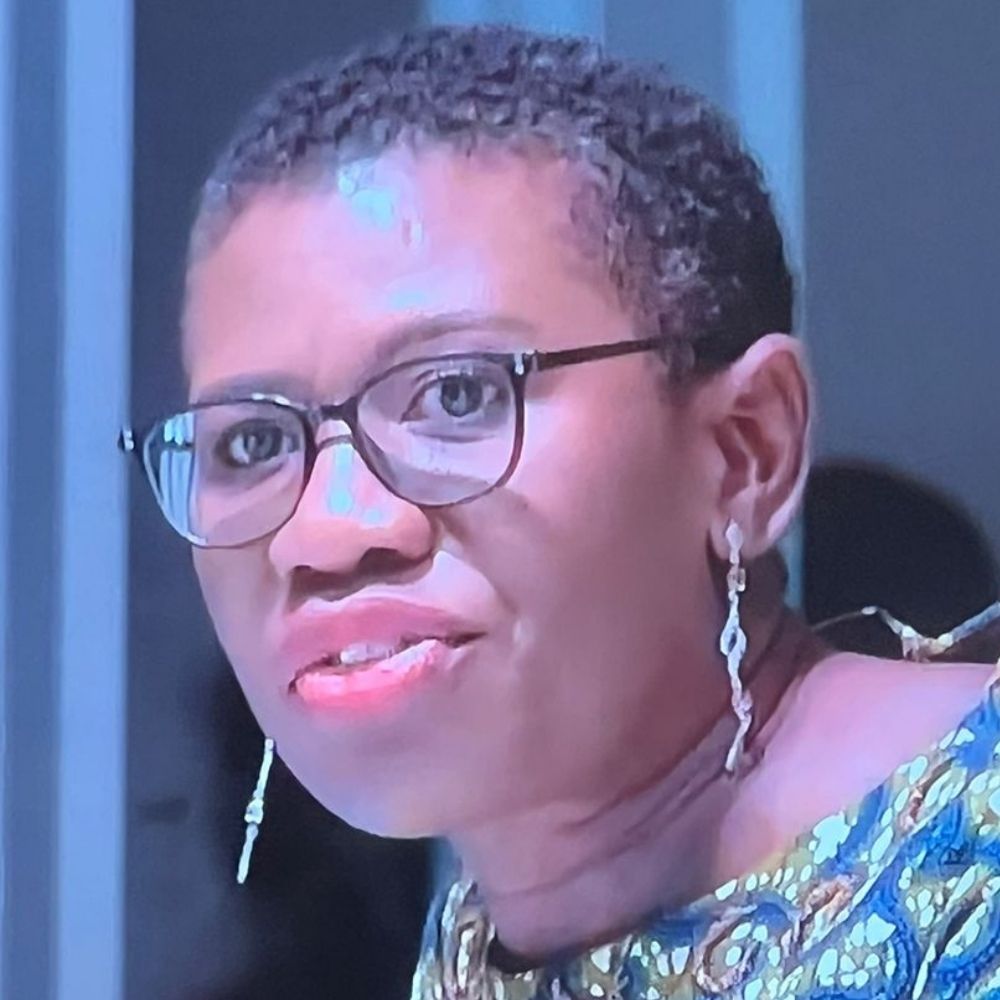

In 2020, we launched #FreetownTheTreetown. The plan was to plant and grow 1 million trees.We are currently at 977 000 & we are confident this will be done by the end of the year! Over 1 500 young people are responsible for the monitoring of the trees. Community engagement is key to this and the co-benefits are numerous – creating resilience, heat reduction, economic improvement through jobs & upskilling.
Yvonne Aki-Sawyerr
Mayor, City of Freetown, Sierra Leone


Including nature into strategies and building biodiverse cities are very important, but we need to go beyond. Three issues are very important:
- Local policy reform
- Biodiversity action plans
- Public awareness and engagement
Carlos Eduardo Correa Escaf
Former Minister of Environment & Sustainable Development, Colombia
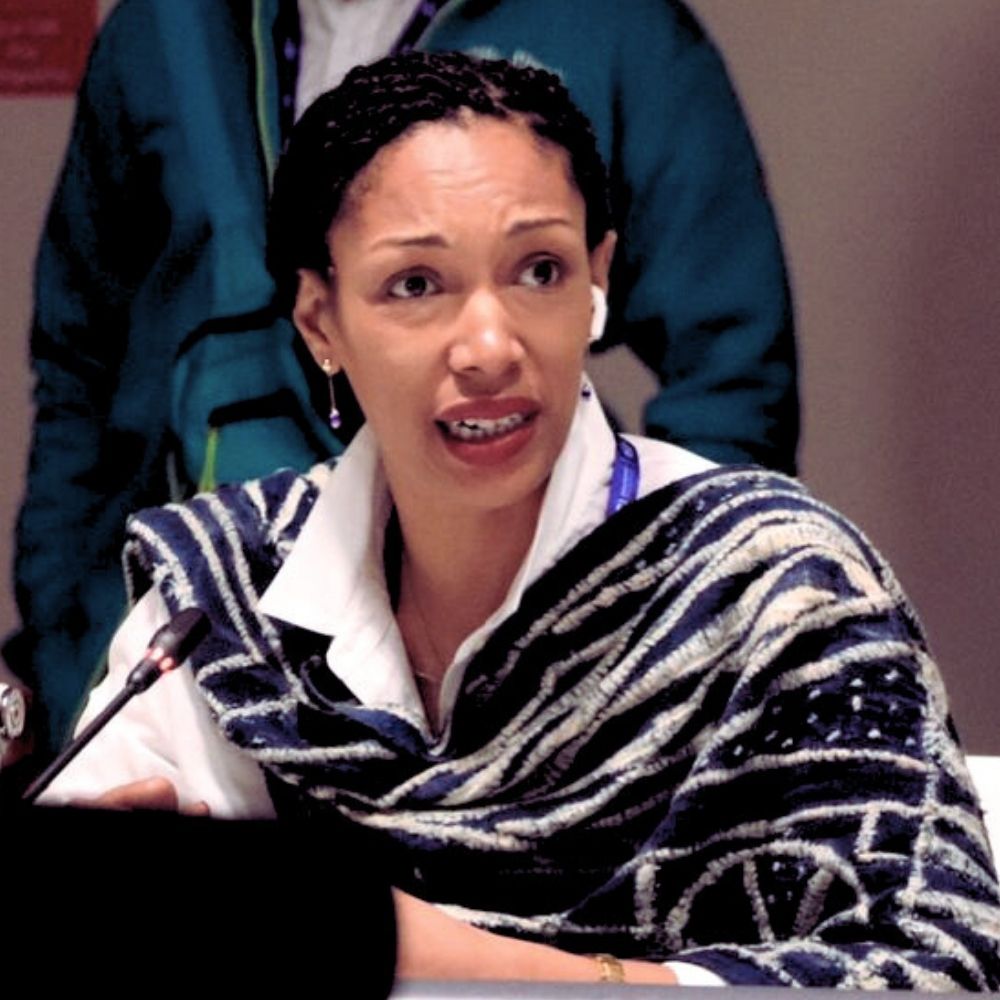

It is essential that, as we develop our climate transition plans, nature and biodiversity are at the top of the list. The climate champions are so proud to be backing and helping support this Urban Nature Program initiative, where we can see cities and nature really coming together.
Jacinda Njike, Africa Finance Lead at the High-Level Champions Team obo Bogolo Kenewendo, UN Climate Change High-Level Champions’ Special Advisor, Africa Director, former Cabinet Minister of Investment, Trade & Industry of Botswana


